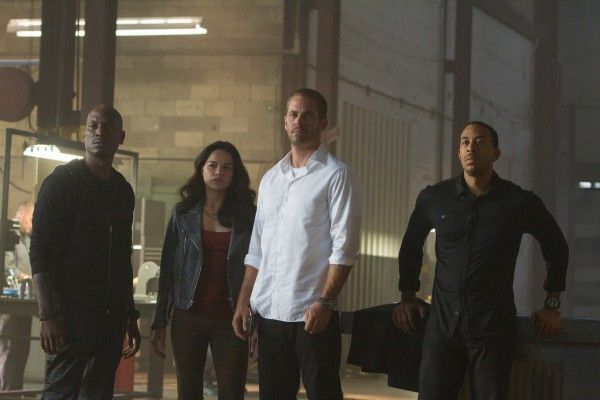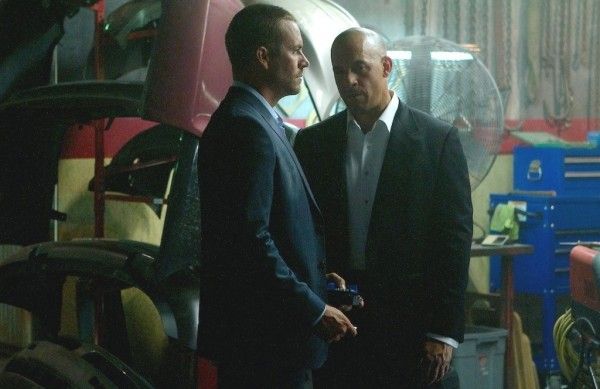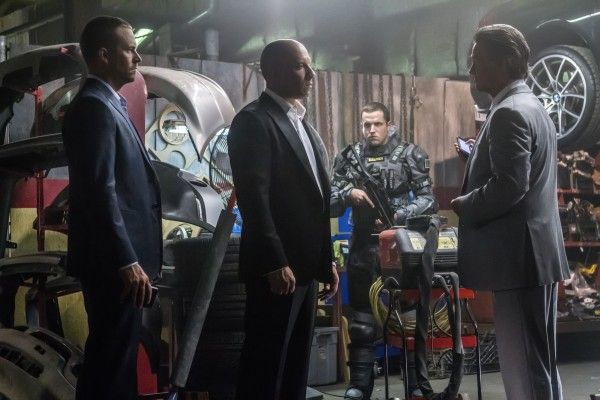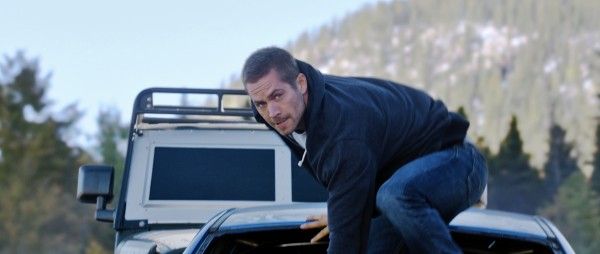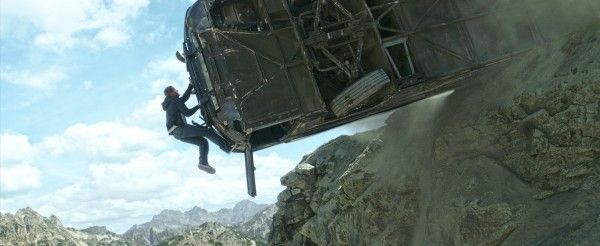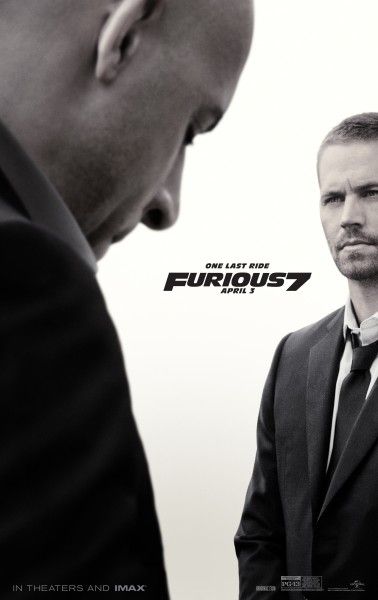Paul Walker’s death was going to loom over Furious 7. There’s no way it couldn’t. He was an integral part of the series, a series where the notion of “family” is held up as the highest virtue. There was a death in the family, and that meant a period of mourning, not just for the cast and crew, but also for the fans. While over a year has passed since Walker’s death, his character Brian O’Connor needed a sendoff. But did the series have to go for more than “For Paul”? Did the movie need to use more than a title card to acknowledge that one of its stars died in real life?
Read on as I break down why the tribute to Walker would be out of sync with any other franchise, but is perfect for Fast & Furious.
It's not Brian's Story
Dom is unquestionably the lead character and Brian is on the same level as Letty, Roman, Tej, and Hobbs. All of these characters are important and get their moments to shine, but in the climax of the film, it’s Dom fighting against the main antagonist and everyone else trying to take care of business on the ground.
Brian has an arc in Furious 7—he wants to accept domestic life—but it’s minor. He has trouble carpooling, Mia is worried that he’ll be upset if they have another child, she and his son get stashed away for the majority of the movie to stay safe, and then O’Connor decides to spend his life with them after the bad guys are defeated. There’s no moment of realization where he misses his family or is reminded of their bond. Perhaps this would have been fleshed out if Walker had lived, but as it stands, the events of the plot don’t specifically motivate him to quit the gang.
Saying "Farewell" Isn't a Theme
Furious 7 never establishes a theme that would relate to saying good-bye. If you really wanted to stretch the subtext to its breaking point, you could maybe make the argument that this is a story about coming to accept death. Owen Shaw refuses to die; Deckard Shaw can’t accept that his brother might die; and Dom believes that Han’s death has to be avenged. Death is a motivator in Furious 7 and the only way to deal with it is with violent retribution.
But these are minor plot points that move the story along. Letty temporarily leaves the team, but she returns in relatively short order. Hobbs is out but only by virtue of losing his fight with Deckard. This isn’t a movie about final farewells, but temporary absence. Perhaps if Owen had died (and keeping him alive is a wishy-washy maneuver designed to bring him back if the series needs him) and Han’s death was a surprise, these plot points would be thematic underpinnings. As it stands, they factor into the first act of the story and then we don’t have to deal with a fond farewell until the final scene.
The Series Had to Acknowledge Brian's Departure
To make a recent comparison, Furious 7 had to acknowledge that one of its stars wouldn’t be coming back as opposed to The Hunger Games: Mockingjay – Part 2, where Philip Seymour Hoffman’s Plutarch Heavensbee is important but not a central character. Ignoring Walker’s death and ending the film without a resolution to Brian’s story would simply push it back to the next sequel and force the plot to either ignore his absence or provide some throwaway line about Brian deciding to stay with his other family.
Throughout Furious 7, I wondered how the plot would address Brian’s departure. How long could they keep him in the story when Walker died in the middle of the production? We knew that the character would be "retired", but in what fashion? Thankfully, the series opted for a grace note, but in the way only a Fast & Furious film could do.
Fast & Furious Has Become Increasingly Self-Aware
The Fast & Furious franchise began inauspiciously. It was about street racers who stole stuff. The second film, 2 Fast 2 Furious didn’t add much other than Roman, and it fizzled to the point where the follow-up, Tokyo Drift, functioned almost as a reboot and was basically The Karate Kid with cars.
But then the movies changed direction and started to forge a new identity with Fast Five. By using Ocean’s Eleven as a model, Fast & Furious created a personality through comparison. It held onto the earlier characters but then upped the stakes in a ludicrous way. It became an ensemble picture and then Fast & Furious 6 deepened that identity by creating an “evil” version of the team and even having the villain call out the series’ origin.
By firmly establishing a new personality, Fast & Furious had enough confidence to give the audience what it wanted without reservation. If the laws of physics were an impediment, then they had to go. If the characters had no limits, then neither would the movies, and that provided the freedom to go absolutely bonkers. Other franchises—no matter how big—were still constrained by “rules”. The only rule for a Fast & Furious picture would be to give the audience the most bombastic, outlandish, unabashed action film possible.
Everything to Excess
Furious 7 has an ending and a postscript. The ending is when they’re all gathered on the beach. The postscript is the driving scene where the story is completely over and the credits should have rolled, but that wouldn’t be fitting for a Fast & Furious movie. “For Paul” would have been too restrained and too simple. The only way to say good-bye was to break the fourth wall, which in some way is what every piece of art does when it acknowledges that it’s dedicated to a specific person.
Last night’s Mad Men began with an acknowledgement to Mike Nichols. It was subtle. It was direct. Now pump that full of steroids and Red Bull and awkward Corona product placement, and you’re on Fast & Furious’ territory.
Cramming in old clips, schmaltzy music, Vin Diesel’s grumbly voiceover, and shots of beautiful vistas is the Fast & Furious way. It’s the way fans love and it was the loving tribute that Paul Walker, who was with this series at the start, deserved.


